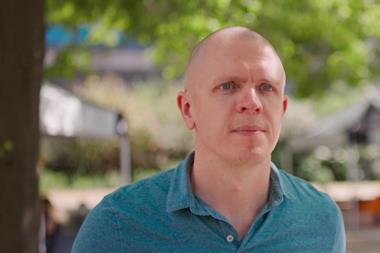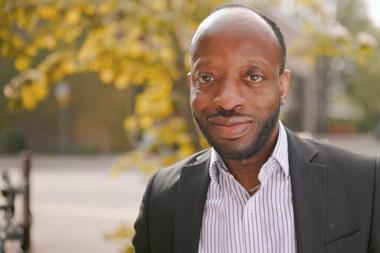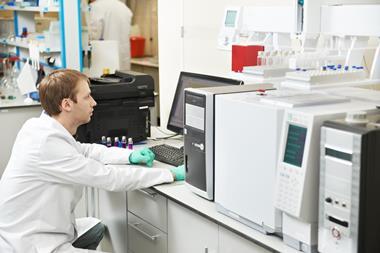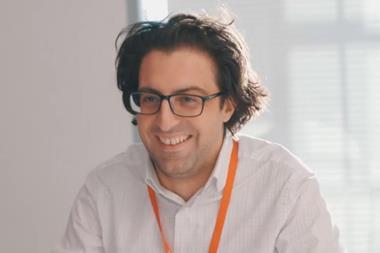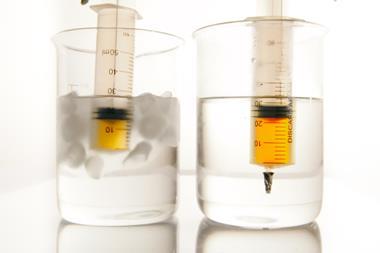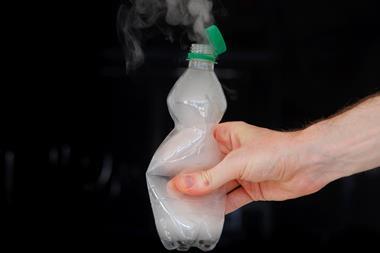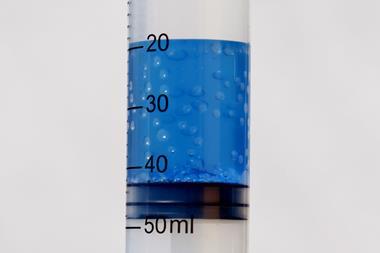Everything you need to know
-
- Salary range: £25–40k
- Minimum qualifications: PhD or equivalent experience
Studied at: UCL - Skills required: Mathematical skills, data analysis, digital skills, analytical skills, problem-solving skills, project management skills, communication skills.
- Training required: Training on how to use specific computational modelling software.
- Work–life balance: There may be opportunities for hybrid working with flexible hours.
- Career progression: Opportunities to travel and present work at conferences.
- Locations: Find related work experience positions using our map of employers
More profiles like Misbah's

What does a senior principal scientist do?
As a computational chemist, I develop atomic-scale models for the catalysts that are used to clean up emissions from gasoline and diesel vehicles, making the air cleaner to breathe.
I use pre-written software packages to study materials that can be used to clean up emissions. I use these programs to analyse materials at the atomic level to understand how they work as catalysts and to predict how to improve them so they work better and last longer. Using computer simulations helps us understand how well the material will perform to reduce emissions and speeds up new innovations in materials.
I also do some computer modelling work on catalysts that are used for a promising cleaner source of energy which uses hydrogen and oxygen to produce electricity with water as a by-product.
How does your work affect the world around us?
At Johnson Matthey, we create products and services that have a positive impact on our planet. For example, the emissions-control catalysts used in the catalytic converters of petrol and diesel vehicles remove harmful pollutants from the air, cleaning the air we breathe. We also produce catalysts for hydrogen fuel cells that are used to power trucks and buses instead of fossil fuels, which avoids releasing carbon dioxide and other harmful emissions into our atmosphere. Outside of transport, our catalysts are also used in the production of renewable fuels and chemicals, from fertilisers for growing food, to jet fuel for flying aeroplanes.
I use computational chemistry to speed up the catalyst design process by using the programs to screen through hundreds of possible catalysts and predict which ones would have the best properties for a given reaction. This guides the synthesis team on what materials to focus on and ultimately gets the catalyst to market faster.
What is your typical working day? Which skills do you use?
On a day-to-day basis, I work with colleagues with different specialisms to understand the way our materials function. Questions are often posed by the experimental team and my job involves understanding the problems, setting up appropriate models, running calculations and then analysing the data.
I also spend time developing new approaches to model some of the materials we are interested in. I use communication skills to explain my results to the rest of the team in a way that is understandable to non-specialists. That could be via presentations or reports. I also supervise PhD students based at various universities. This involves regular project review meetings to guide their work as well as working together to write publications. I often get to travel and present my work at conferences both in the UK and abroad.
What do you like most about your job?
I enjoy the variety and breadth of projects and using computational chemistry techniques to gain a fundamental understanding of how some of the materials we use in our products function. I also enjoy the challenge of linking the results from the models to experimental work, which often requires using new, cutting-edge techniques. I like the fact that my research is contributing to making the world cleaner and healthier.
How were you inspired to work in chemistry?
I always enjoyed science at school and the subject I enjoyed the most at A-level was chemistry so I decided to pursue a degree in this at UCL. I really enjoyed my degree, particularly the physical chemistry and materials chemistry modules. My fourth year research project focussed on using computational chemistry to study diffusion in porous materials called zeolites. I was fascinated by zeolites and their applications so I decided to continue my studies by doing a PhD. During my PhD, I came to know Johnson Matthey as they were sponsoring one of my colleagues through her PhD. I was attracted to the company due to its focus on emissions-control and sustainable catalysis so, when a job was advertised in the Computational Chemistry Group to work on new materials for fuel cell applications, I applied to join the team.
What advice would you give to a young person considering a career in chemical science?
Get some work experience – perhaps consider studying for a degree that offers an industrial placement or try to find a summer internship in industry or at university. While this isn’t necessary to get a job, it is a good way of getting insight into what it’s like working in an industrial environment.
What are your plans for the future?
There are many options that I could pursue. I could develop my career as a scientist or I could move into more of a commercial role working directly with customers.
Want to find out more?
- Explore your study options, talk to a career adviser and look into gaining work experience.
- Browse Johnson Matthey’s careers page.
Misbah Sarwar MRSC, senior principal scientist at Johnson Matthey Technology Centre.
First published July 2022









